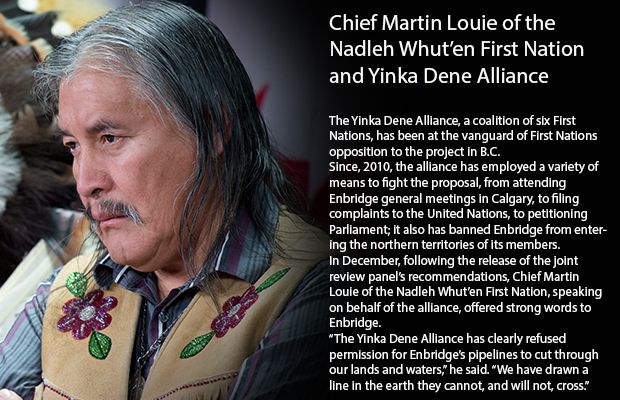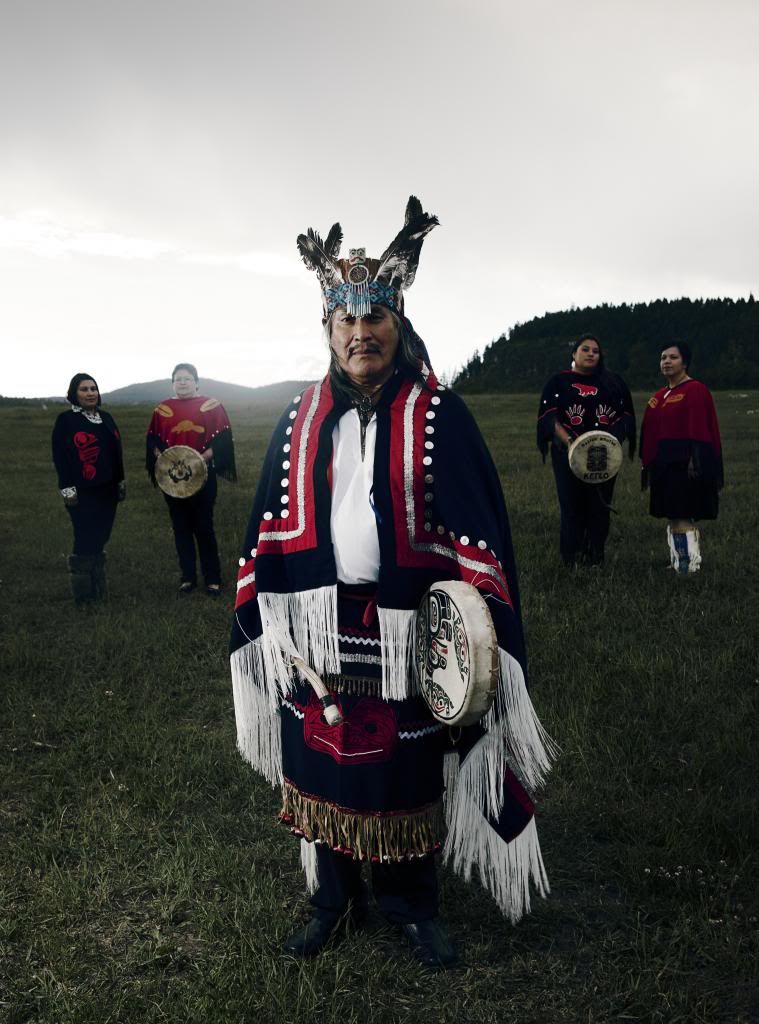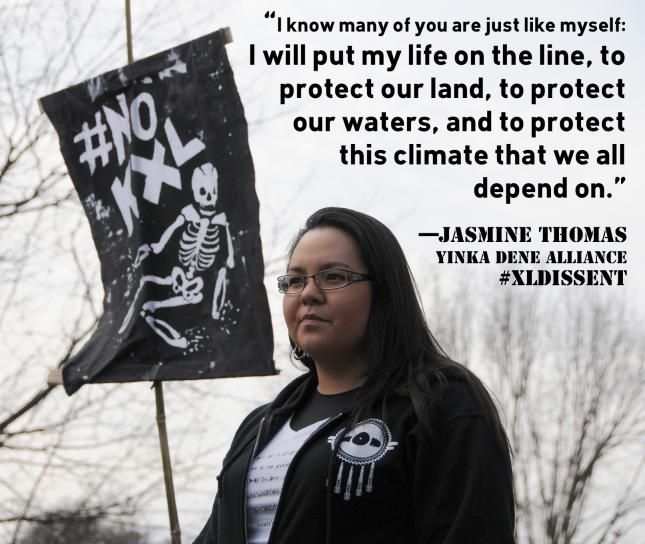This morning Canada's Supreme Court handed down a long awaited decision giving Canada's First Peoples title to lands that they have traditionally used over centuries, beyond their First Nation Reserves. Almost as importantly the Supreme Court ruled that First Nation tribes will get to decide what kinds of development projects are appropriate on their traditional lands.
This momentous ruling has direct implications for some of Canada's biggest planned dirty energy projects, like the proposed Northern Gateway Tar Sands pipeline project to ship Bitumen across British Columbia to the Pacific Ocean near Prince Rupert, and the proposed expansion of the Trans Mountain Pipeline to ship Alberta Bitumen to Vancouver transforming Vancouver into a major oil port for Bitumen. This ruling would also affect some fracking proposed for native lands in Eastern Canada.
Top court grants land title to B.C. First Nation
OTTAWA -- For the first time, the Supreme Court of Canada has recognized a First Nation's title to a specific tract of land -- a historic decision with major implications for contentious energy projects such as the Northern Gateway pipeline.
Thursday's 8-0 decision, which overturned an appeal court ruling, will essentially make it easier for First Nations to establish title over lands that were regularly used for hunting, fishing and other activities.
The landmark ruling is the Supreme Court's first on aboriginal title and will apply wherever there are unresolved land claims.
Tsilhqot'in First Nation granted B.C. title claim in Supreme Court ruling
Establishes meaning of title
In its decision, Canada's top court agreed that a semi-nomadic tribe can claim land title even if it uses it only some of the time, and set out a three-point test to determine land titles, considering:
Occupation.
Continuity of habitation on the land.
Exclusivity in area.
The court also established what title means, including the right to the benefits associated with the land, and the right to use it, enjoy it and profit from it.
However, the court declared that title is not absolute, meaning economic development can still proceed on land where title is established as long as one of two conditions is met:
Economic development on land where title is established has the consent of the First Nation.
Failing that, the government must make the case that development is pressing and substantial, and meet its fiduciary duty to the aboriginal group.
In other words, the decision places a greater burden on governments to justify economic development on aboriginal land.
Supreme Court grants land title to B.C. First Nation in landmark case
By: Tonda MacCharles
And governments may justify “incursions” on aboriginal title lands in certain cases.
In order to do that, governments must meet a “proportionality” test: they must show a law is necessary to achieve the government’s goal; the law must go no further than necessary to achieve it; and the benefits “that may be expected to flow from that goal are not outweighed by adverse effects on the Aboriginal interest.”
Importantly, in cases where title has not yet been proven, governments are still required to consult “in good faith” and, where appropriate, accommodate the concerns of an aboriginal group.
Native groups, industry and governments were looking to the top court to clearly set out how to define aboriginal title — or ownership of land in the absence of a treaty ceding it — in practical terms.
At the heart of the case was the question of whether governments and courts should take a broad view of aboriginal ownership of lands historically used and occupied by First Nations, or whether traditions of nomadic living, hunting, trapping and fishing traditions of aboriginal peoples should lead to a narrower view of what territory they can lay claim to.
The high court returned to the theme of reconciliation, and emphasized the Crown’s duty to aboriginal people.
There are large tracts of unceded territory in many provinces, including land along the Ottawa River itself where the Supreme Court of Canada and Parliament buildings sit on territory never ceded by the Algonquin of Ontario.
Canada’s high court sides with First Nations in land rights case
by Benjamin Shingler
A long, hard road
First Nations across Canada, many of which are still seeking modern, comprehensive land claim agreements with the government, were seeking a ruling that would provide some clarity, Christie said.
“Given all the resource development projects in the works, this has the potential to have quite an impact on all of that,” he said.
The Tsilhqot’in said in a statement earlier this week that the “true recognition” of aboriginal land rights was long overdue.
“It has been a long, hard road to get to this point,” said Chief Joe Alphonse.
“Many of us have worked towards this our entire lives in leadership.”
The Supreme Court case stems from a conflict that began in 1983, when the Tsilhqot’in fought to keep a logging company off the traditional territory of one of its tribal bands, known as Xeni Gwet’in.
This stops Canadian Prime Minister Harper's efforts to erode First Nation sovereignty, and eliminate First Nation land rights wherever dirty energy projects were proposed on tribal reserve lands, abrogating treaties with First Nation peoples. Prime Minister Harper is Canada's George W,. Bush. Harper's dismissal of Global Warming and his shameless promotion of developing Canada's Tar Sands has made Harper the Dirty Energy industry's compliant tool in Ottawa.
When I searched for news on Canada first thing this morning I was expecting some really bad news since the Toronto papers were expecting Harper's government to give the go-ahead for the Northern Gateway Pipeline as early as today, instead I got a very welcome surprise.
This decision rights a great wrong.
Also see: Fighting the tar sands: Who are the Yinka Dene?
and
Meanwhile on the other Tar Sands (Trans-Mountain) Pipeline Project in Canada...





